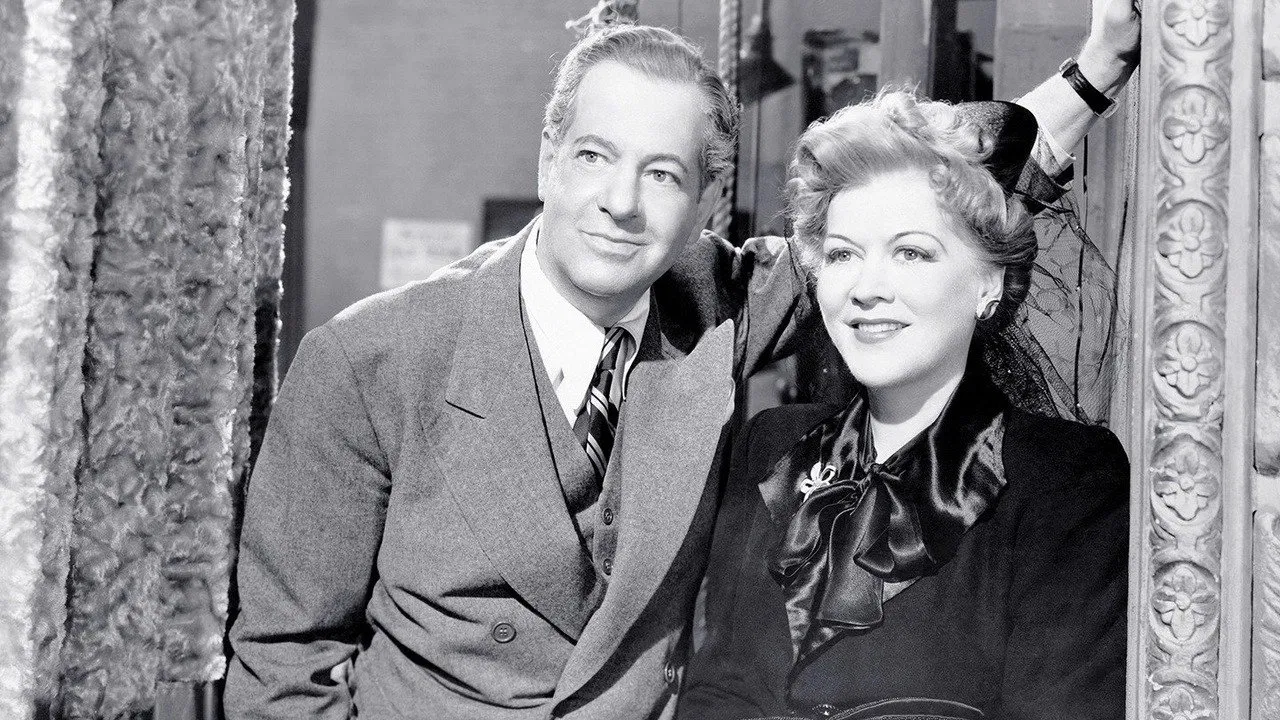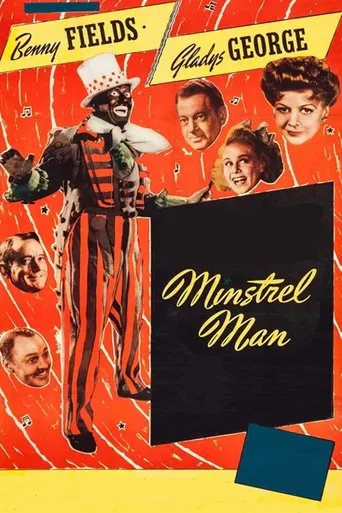GamerTab
That was an excellent one.
Voxitype
Good films always raise compelling questions, whether the format is fiction or documentary fact.
Marva
It is an exhilarating, distressing, funny and profound film, with one of the more memorable film scores in years,
Dana
An old-fashioned movie made with new-fashioned finesse.
bkoganbing
I'm not sure and I'm certain to be corrected if I'm wrong, but Minstrel Man might very well be the only PRC film ever to get recognition from the Academy. It received two Oscar nominations for Best Song and for musical scoring. A studio known for its pinch penny budgets for noirs, westerns, and a few horror films producing a musical? It's worth the novelty just to watch the thing.A year before Minstrel Man came out Paramount even used Technicolor in its minstrel film Dixie that starred Bing Crosby. The folks at PRC thought that maybe a minstrel film would work for them. Of course they did not have Crosby or color.The lead here is Benny Fields who was a well known song and dance man and became even better known when he teamed on the stage and in life with Blossom Seeley. Blossom was smart enough to stay away from this.Good song and dance man that he was Fields just couldn't act. When not singing he's wooden and as charming as a wet napkin. The story covers some thirty years of the life of Fields's character Dixie Boy Johnson.The climax involves the revival of minstrel shows. I mean in 1944, really?Seasoned performers like Gladys George and Roscoe Karns are wasted as the surrogate parents to the daughter of Dixie Boy Johnson. And a pretty perky blond like Molly Lamont wants to hide that beauty under cork makeup. Give me a break. It's more than the subject matter that's kept this film under wraps.
showtrmp
Low-budget early B musical of 1940 that makes you alternately laugh and cringe at the datedness and the cheery, seemingly unconscious racism. Benny Fields stars as Dixie Boy Johnson, a supposedly world-famous minstrel-show performer whose wife dies during childbirth on the very night of his biggest opening yet. He reacts to this by letting his mouth droop, shifting his cheek muscles slightly, and embarking on a five-year booze-and-gambling fest across Europe. A convenient boating accident has the rest of the world thinking him dead; he changes his name and hides out in California, sending flowers to his abandoned daughter every year on her birthday and hovering in the background as she prepares to become a star herself. When she makes her own minstrel-show debut (playing his part in a revival of his big hit!) he's in the wings silently cheering her on; he eventually sneaks onstage (blackface and all), reveals himself to his daughter (how does she recognize him?) and the two of them duet on his signature song, which he was performing the night his wife died. The maudlin tearjerking would send Joan Crawford into gales of hysterical laughter.Fields doesn't convince as a headliner; he sings in a monotonous croon that would put Mel Torme to sleep and his acting is a series of shrugs. As if to compensate, Judy Clark (playing his supposedly destined-for-stardom daughter) is so plucky and perky and cheerful, by gum, she makes "Oklahoma" seem like "Sweeney Todd." Gladys George has a beautiful, trained speaking voice; she brings as much color and variety to her functional role as she can.Moviegoers wanting to see some historical glimpses of minstrel-show musical staging (both of you) will also be disappointed; the Oscar-nominated(???) score rarely rises to mediocre, and the camera never seems to be in the right place during the dances. The final big production number is staged on an ugly set of steps; the chorus members file onto each step and spend the whole song crossing from one side of the stage to the other and back again. This movie certainly doesn't make anyone mourn the loss of the minstrel-show form; most modern audiences will greet the end of the picture with audible relief.
dbborroughs
Story of a star performer in minstrel shows who loses his wife in childbirth then gives up on his daughter who begins to rise to prominence as a performer in her own right. Okay backstage drama suffers from a leading man who is a cold fish. Its not clear how he would have been a star of any sort since the actor portraying him has such little charisma that you really don't care and he brings everything down. The music is okay with big production numbers that would make you think this wasn't a Poverty Row film. I know the subject matter of minstrel shows will not sit well with some people. Having seen a couple of similar films set in and around a minstrel show I found this film's portrayal more likely to be offensive then others. As an entertainment in its own right I found it just okay with the lead's poor performance and the subject matter diminishing my enjoyment.
marcslope
The great Al himself might have pounced on the role of a great blackface minstrel singer who, after his wife dies in childbirth, becomes bitter and resentful, leaves his infant daughter with friends, tours in minstrelsy, is supposedly lost in the Morro Castle disaster at sea, and miraculously returns to be reunited with his now-grown-up little girl, who is opening in a brand-new 1944 minstrel show. The movie blithely pretends that minstrel shows are still up-to-date and wildly popular, and thus exists in a kind of vacuum. The fine Hollywood songwriter Harry Revel, who had seen better days, wrote the very derivative melodies, which were scored by no less than Ferde Grofe (of the "Grand Canyon Suite"), and it looks like the Grade-Z studio, PRC, actually spent some money on the sets and costumes, if not the cast, which consists mostly of folks on the way up or down. Gladys George, an actual Best Actress Oscar nominee back when (for "Valiant is the Word for Carrie"), lends some minimal class, and Roscoe Karns gets to display more range than his A pictures granted him; even a young, full-voiced John Raitt turns up, though he's unrecognizable in blackface. Benny Fields is, as other posters have noted, no actor and not the best vocalizer, either, but he does convey some sincerity, and it's kind of touching to see such an unappetizing and over-the-hill guy attempt a conventional leading man role. Judy Clark, as his daughter, has the pizazz and confidence of an A-picture starlet. If you can stomach all the blackface (and there's a lot of it) and the clichés piling up, you'll be pleased at the picture's efficiency and unpretentiousness. And watching a "Mammy"-"Sonny Boy"-style story nearly 20 years after it went out fashion is sort of fascinating.

